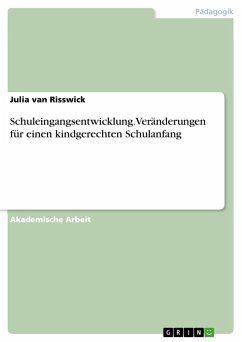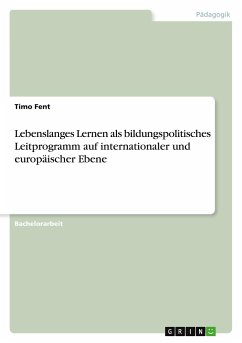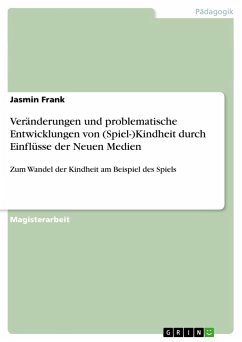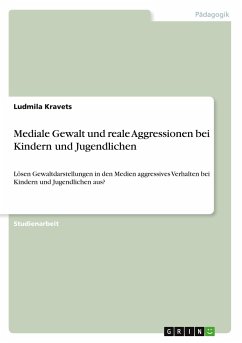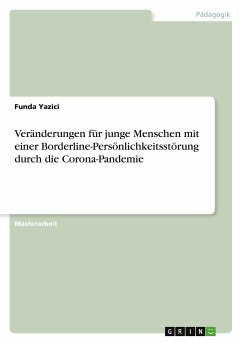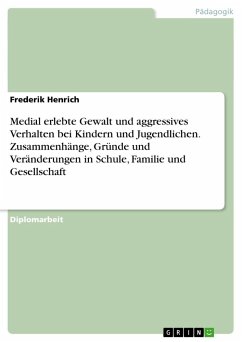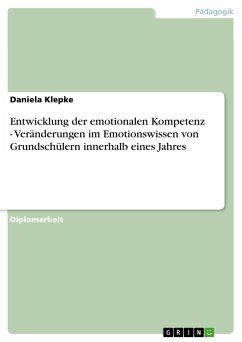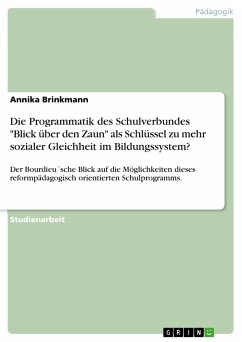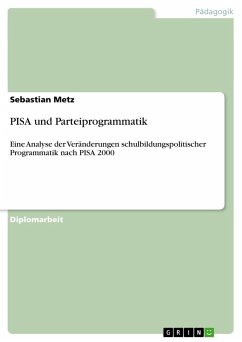
PISA und Parteiprogrammatik
Eine Analyse der Veränderungen schulbildungspolitischer Programmatik nach PISA 2000

PAYBACK Punkte
0 °P sammeln!
Diplomarbeit aus dem Jahr 2009 im Fachbereich Pädagogik - Schulwesen, Bildungs- u. Schulpolitik, Note: 1,3, Universität Konstanz, Sprache: Deutsch, Abstract: AbstractThe results of the international student assessment study PISA 2000 have uncovered seriousshortcomings of the German school system and evoked a great public response. Since thennumerous scientific publications have dealt with the PISA study and its implications. But oneaspect so far has found little consideration: the programmatical processing of the PISA shockby the political parties.The present thesis picks up this scientific ...
Diplomarbeit aus dem Jahr 2009 im Fachbereich Pädagogik - Schulwesen, Bildungs- u. Schulpolitik, Note: 1,3, Universität Konstanz, Sprache: Deutsch, Abstract: AbstractThe results of the international student assessment study PISA 2000 have uncovered seriousshortcomings of the German school system and evoked a great public response. Since thennumerous scientific publications have dealt with the PISA study and its implications. But oneaspect so far has found little consideration: the programmatical processing of the PISA shockby the political parties.The present thesis picks up this scientific desideratum and analyses how the programmaticalprofiles in the area of school policy of the two Volksparteien CDU and SPD have changedsince the first PISA study. Furthermore it will be examined which of those in the course ofPISA thematized proposals for reform have been programmaticaly seized by the parties. Atlast it will be studied, if in the aftermath of the PISA shock there has been a greaterprogrammatical convergency or divergency of the parties. To handle these questions, the stateelection manifestos (Landtagswahlprogramme) from CDU and SPD of all the german federalstates of the last elections before and the first elections after PISA are analyzed with themethod of content analysis. On the basis of the empirical results it can be shown, that theschool political profiles of the two partys have changed in content as well as in their fields ofattention. Thus there has been spotted the appearance of new topics such as early childhoodeducation and also the emphasizing of certain aspects, for instance the expansion of full-timeschools.From the mainly thematized proposals for the improvement of the German school system, itseems that the majority has been picked up by the parties. In this context it attracts attentionthat the claims for special measures to reduce educational disadvantages of kids and youthsare hardly taken into account by the parties.Concerning the differences in the school political profiles of the Christian and SocialDemocrats, party-specific beliefs and approaches still exist. However the partys` answers tothe challenges highlighted by the PISA-study are, barring the issue of the school structure,quite similar to each other. Moreover, after PISA 2000 an approximation in the importancewhich the partys attach to the individual school political aspects can be stated. Therewith thefindings indicate a convergency of the school political profiles of CDU and SPD after PISA.





